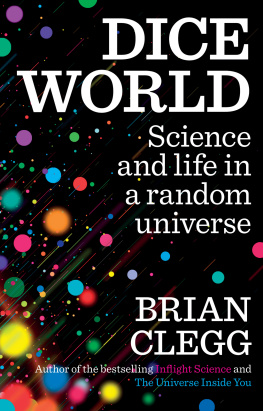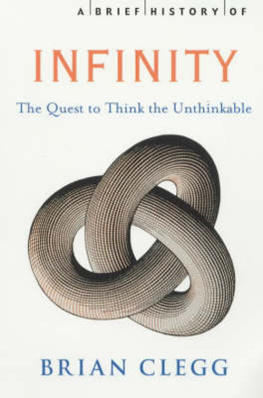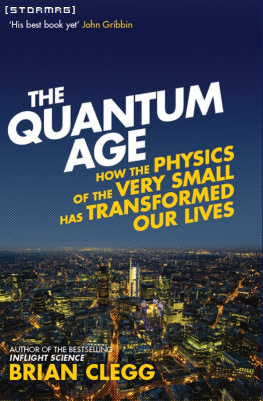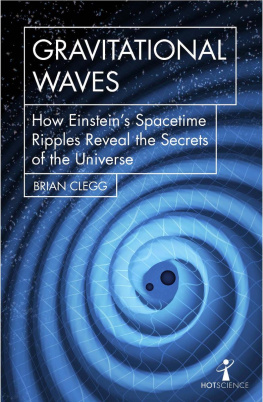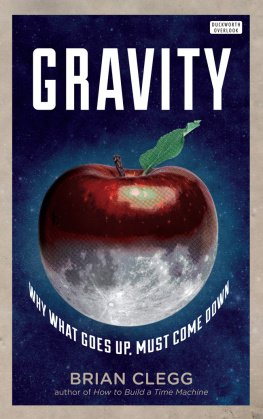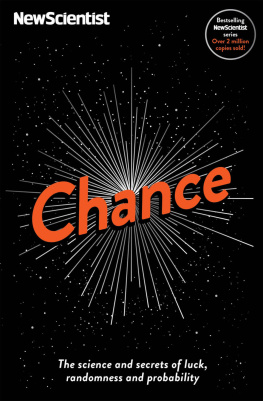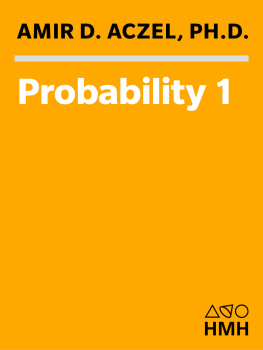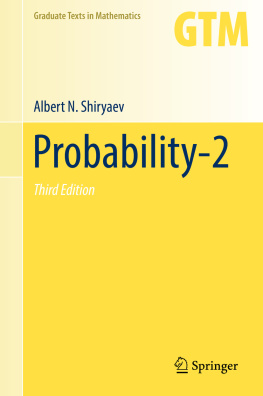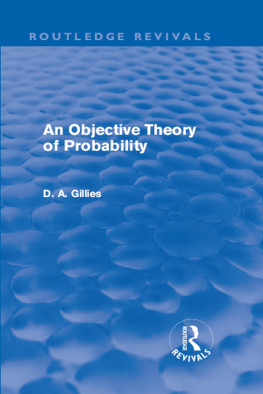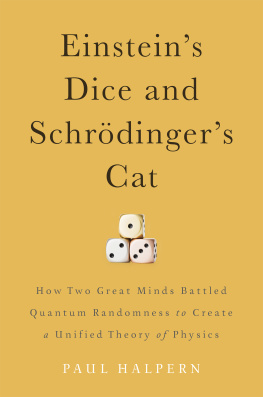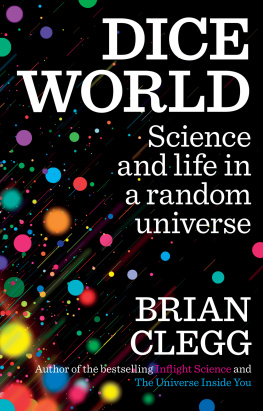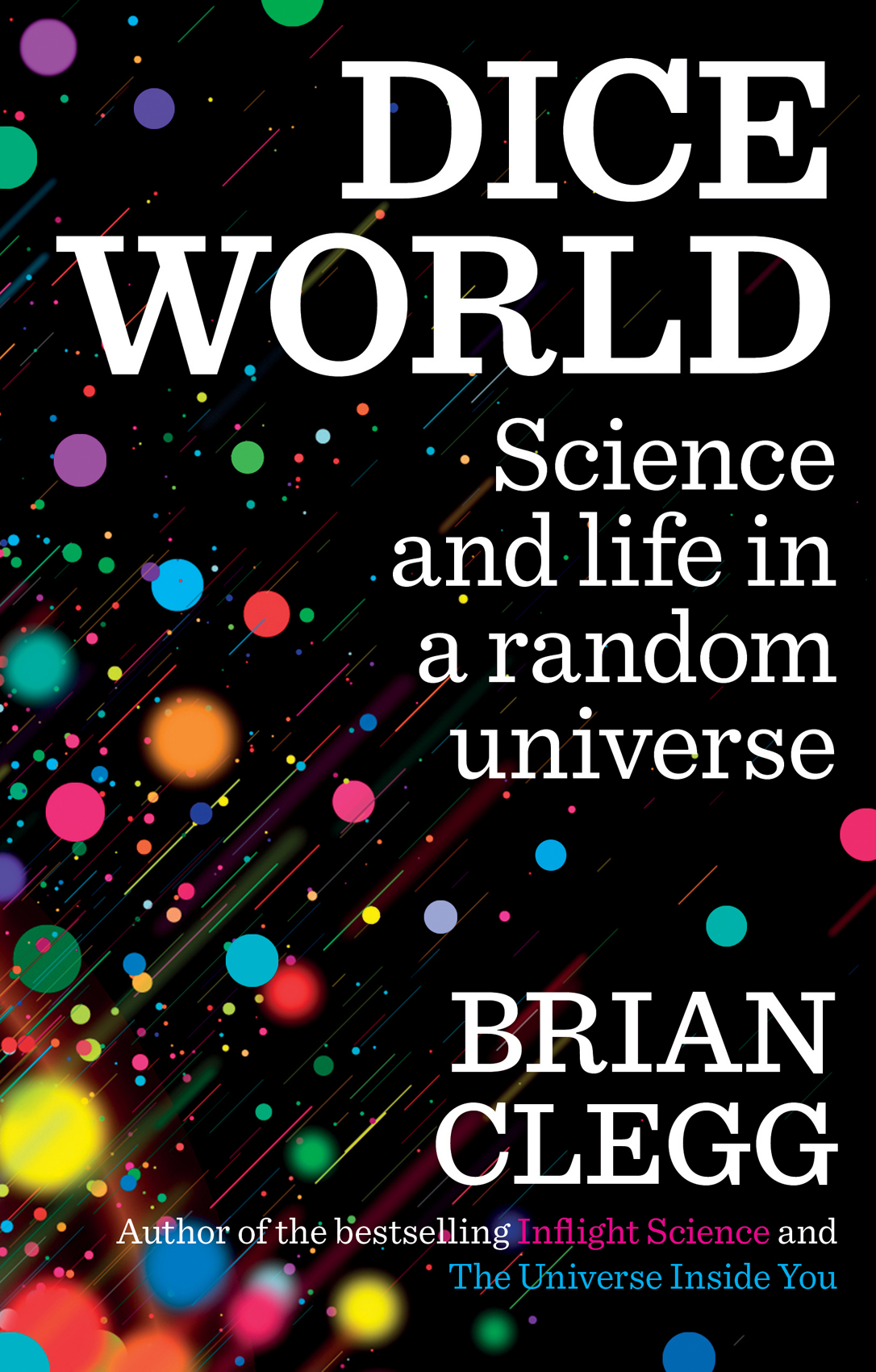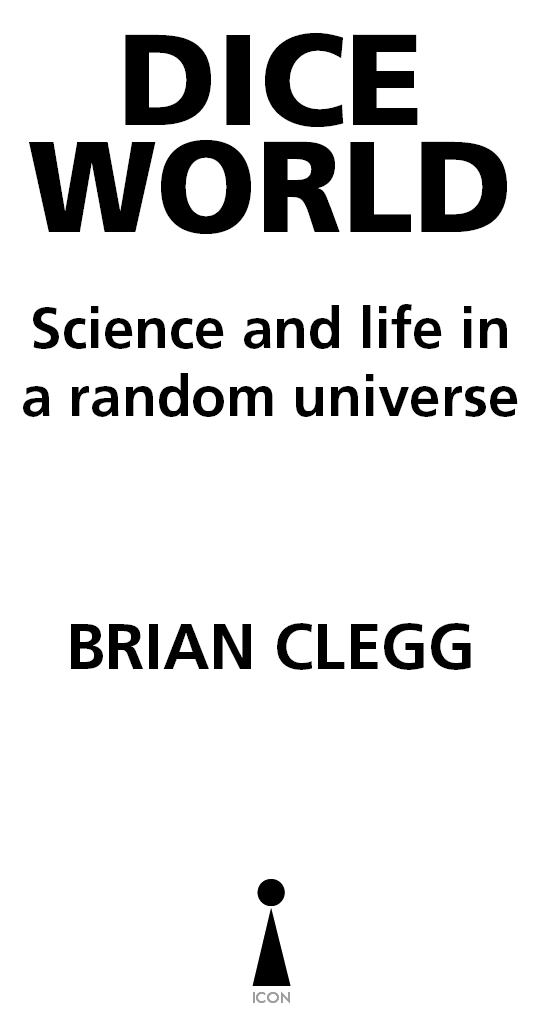The author has asserted his moral rights.
No part of this book may be reproduced in any form, or by any means, without prior permission in writing from the publisher.
Acknowledgements
For Gillian, Rebecca and Chelsea.
With particular thanks to Keith Rapley and the late John Carney, my mentors when working in operational research arguably the ultimate discipline for applying probability and statistics to real-world problems.
Many thanks to all those who have helped make this book possible, especially Duncan Heath, my editor at Icon Books, and all the contributions from Andrew Furlow, Dr Peet Morris, Denni Saunders, Dr M.G. Harris, Cathy Murphy, Perry Rees, Katherine Kelly, Paul Tuck, Amanda Lever, Edward Cope, Helen Witney, Dr Henry Gee, Mats Anderson, Liz Warrick, Stacey Croft, Desney Harrington, Kathy Peacock, Sarah Mussi, Matt Brown, Euan Adie, Ethan Friedman, Lynn Price, Amy Cope, Chris Reeves, Diane Rendell, Sue Broughton, Mark Lloyd, David Howkins, Stephen Godden, Dr Harriet Dunbar-Morris, Oriana Morrison-Clarke, Stewart Desson and Henry Lord.
CHAPTER 0
Alea jacta est
The first stage of writing a non-fiction book is usually to sketch out a summary of each chapter that will go in the finished work. At that time, the possibility of writing this chapter had not occurred to me hence it being chapter zero. The very existence of this chapter is a great example of random influences at work.
Shortly after I began my background research for Dice World, I read a book called The Black Swan by Nassim Nicholas Taleb. This was not part of my research it was intended as bedtime reading, light relief from work. I was taking a look at a cult classic that Id never got around to I didnt even realise at the time that the book featured chance and probability. It was something of a shock, given that I had already chosen the title Dice World for my own book, to find Taleb railing against the image of dice as a cultural reference for randomness. Taleb refers to this as the ludic fallacy, his idea being that dice represent the fake, controlled, predictable randomness of games, not the real, wild randomness of life.
To rub this in, Taleb tells his readers a story of two fictional characters faced with a classic game-based challenge that is often used to demonstrate the difficulty many people have with understanding probability. Lets imagine we have a fair coin, which when flipped has a 50:50 chance of coming up heads or tails. On average, we expect the coin to come up heads half of the time and tails half of the time. We flip that coin 99 times in a row and get a head every single time. Whats the chance that we will also get a head on the next throw?
In Talebs story, the first character, an accountant, comes up with the standard correct response you would get from anyone who has a good understanding of the basics of probability. On the hundredth throw, there is still a 50 per cent chance of getting a head. The coin has no memory. To think that somehow you are more likely to get tails this time because heads have come up so many times before is whats known as the gamblers fallacy. There is no connection between the 100th toss and the ones that came before it. You are starting from scratch with a single toss of the coin. The outcome is still 50:50 heads or tails.
The other character in The Black Swan, a city trader, thinks that this statistical view on life is rubbish. Its not that he agrees with the gamblers fallacy that the coin is due to come up tails. He has no intention of falling into that trap. In fact, the trader will tell you, theres a high chance instead of getting another head. And he is probably right. Why? Because in the real world, it is much more likely that the person who told us it was a fair coin was lying than it is that you will get 99 heads in a row from tosses of an unbiased coin. The real world is not like a game with nice, easily calculated probabilities and no outside influences. The real world cheats.
That is fair enough as a realistic observation of what the world is like, but I think that Taleb misses the point when it comes to using the image of dice as a device to suggest randomness. The dice are symbolic, they are not a computer model of real-world experience. The way that dice provide an illustration of natures indifference to our human affairs and desires is an ancient conception that Albert Einstein used as a parable for 20th-century science. Einsteins various statements along the lines of God does not play dice were used to illustrate his frustration with the way that quantum theory suggested the apparently predictable real world was in fact based on unpredictable chance. It was never intended to provide a detailed analysis of the different kinds of probability and randomness out there just a nice picture to illustrate something out of our control. And it works.
The quote that provides the title of this mini-chapter, alea jacta est, attributed to Julius Caesar as he crossed the Rubicon and meaning the die is cast, illustrates exactly how the throw of the dice provides powerful imagery, in this case identifying a point of no return. To deny dice their figurative role seems unreasonable.
Symbols arent intended to be reality, and the resonant role of dice and other gaming mechanisms helps us grasp some aspects of probability, even if we have to then extend far beyond this to get a true picture of the real world. Denying their symbolism is a bit like complaining that the road sign showing a landslip only features a handful of rocks where a real landslip may well have millions of bits of debris in it. Symbols are not supposed to be the real thing. So this book proudly remains Dice World.
If you are a certain age (which I am), Dice World may also bring to mind another book, which was very popular when I was at university The Dice Man by Luke Rhinehart. That novel featured a disaffected psychologist who decides to let dice rule his life, handing every decision he makes over to the throw of the dice to make the choice. For me it was a very sad and depressing novel: it is one thing to be aware of the significance of randomness in our lives an important thing indeed. But it is something quite different to simply give away all rational choice to a random number generator.
Dice World is not the natural home of the Dice Man. Most of us dont make our decisions by throwing dice. But like it or not, randomness can be effectively symbolised by a throw of the dice. And as we will discover, randomness is the underlying heartbeat of our universe.
Welcome to Dice World.
CHAPTER 1
Improbable world
The world is a complicated and messy place, especially when you consider the complexities we add to it with our carefully constructed environment. Take a really simple act that most of us perform every day without giving it a thought switching on an electric light. This is clearly not something we are genetically programmed to deal with from birth. Human beings are pretty well identical to the creatures that evolved to survive on the savannah after their ancestors stopped living in trees over 100,000 years ago. Once you get beyond basic bodily functions and activities, the vast majority of our time in the modern world is spent doing things that the human body did not evolve to do. All the rest of our activities and experiences are relatively newly learned. We live unnatural lives.

